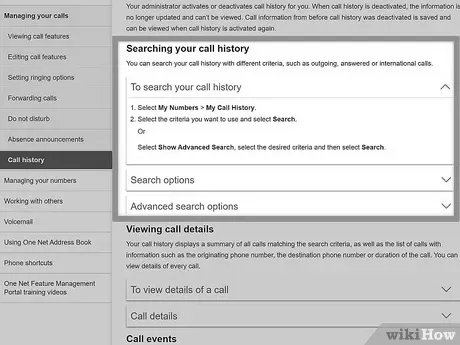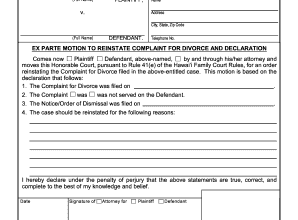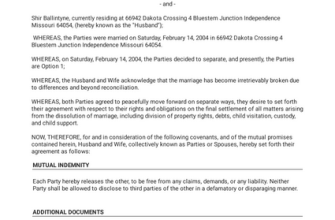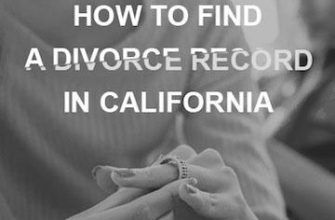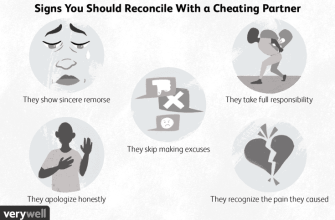When pursuing a divorce, it is often advantageous to obtain information on your spouse’s cell phone use, especially when it’s a topic of heated disagreement. While most litigants delete text messages, attorneys can request screenshots and copies of a cell phone bill from the spouse. To avoid being charged with deleting text messages, it is preferable to request cell phone records directly from the service provider. Cell phone providers typically only provide records of when text messages were sent, not what they actually said. However, if your spouse is suspected of harassment or communication, cell phone records may be useful in establishing your case.
- Subpoenas for cell phone records
- Authentication of text messages
- Using text messages as evidence in a divorce case
- Using social media to prove your spouse was having an affair
- Exemptions to public access to divorce records in Massachusetts
- Sources of divorce records in Massachusetts
- Cost of accessing divorce records in Massachusetts
Subpoenas for cell phone records
There are many reasons why your attorney may subpoena your spouse’s cell phone records in a divorce case. In Colorado, for example, your divorce attorney may be looking for evidence of infidelity or fraud, as well as hidden assets, social media accounts, or photographs. When your divorce lawyer is subpoenaing your spouse’s cell phone records, you can request their full records, including deleted messages and photos.
Although most cell phone carriers retain the records of text messages for 30 days, it is important to know that obtaining this information during the court process may be impossible or difficult. Depending on the circumstances, you may be able to obtain the records by drafting a letter to the carrier. Be sure to cite relevant provisions of the Stored Communications Act, and send it certified overnight.
If your attorney has a legitimate reason for subpoenaing your spouse’s cell phone records, they should be able to provide it. This is especially useful if you believe that your spouse has been sending you texts that you are not comfortable sharing with your partner. Additionally, cell phone records can be useful if your spouse is engaging in a pattern of harassment or harassing behaviors.
Cell phone records can also be useful in a custody dispute if you’re trying to figure out who is the primary caretaker for the children. Private phone records may be useful in proving the presence of a romantic interest, for example. However, if you’re trying to determine the custody of your children, subpoenaing cell phone records may be beneficial for you.
If your spouse is arguing that you’re cheating on your spouse, the phone records can be used as evidence in court. In a no-fault divorce, the phone records won’t matter. However, if your spouse is alleging adultery or other fault in the divorce, the phone records are likely to be relevant. So what are the reasons for subpoenaing cell phone records in a divorce case?
Authentication of text messages
There are several ways to get authenticated text messages in a divorce case. If one party admits to sending the text message, the other party can upload it to their computer or print it out. However, getting authenticity can be tricky if there is no way to confirm who sent it and when. Moreover, it’s important to remember that if you want to get a divorce, the text message evidence should not be the only thing that you need to collect and analyze.
Usually, lawyers will subpoena the records of the phone to prove that a spouse has been communicating with another person. However, this does not mean that you should be sending inflammatory or offensive texts. Rather, you should try to limit the content of texts to messages that can help the case. You can also try to get a copy of the texts from the phone’s family account, which will allow you to examine them.
Authentication of text messages in a court of law is possible, but the court must be convinced that the evidence was created by the person who sent them. To get this done, you should have enough evidence on your side, such as the receiver’s phone number and the time and date of sending and receiving the text messages. Otherwise, you may have to settle for a lower court ruling. Therefore, it’s crucial to get an authenticated text message if you have a high-profile divorce case.

Despite the difficulty in getting authenticated text messages in a divorce case, it’s becoming more common in Texas. Dallas family lawyers must get a predicate for the text messages to prove their authenticity. To get the predicate to admit the text message, the message must be an original document, untouched by any means. In other words, it must satisfy an exception to the hearsay rule, which prevents out-of-court statements from being offered as truth. However, the Texas Court of Criminal Appeals has announced the proper predicate for text messages to be admitted in court.
Whether text messages are admissible in a divorce case depends on how authentic they are and whether they were written by the person who sent them. However, it may not be necessary to get a certified copy of the text messages in order to get them in a divorce case. Most divorces are based on no-fault grounds, so blatant cases of adultery may not have much impact on the outcome of the divorce.
Using text messages as evidence in a divorce case
Using text messages as evidence in a divorcing couple’s divorce case may seem like a good idea, but it is not that simple. First, it’s important to make sure that you actually got the messages. Otherwise, they may come across as being fabricated and will not be considered as evidence. Text messages are a great way to prove many aspects of a divorce, from abuse to infidelity to promises made to children.
To use text messages as evidence in a divorce case, you’ll have to get the other party’s permission to use them. Generally, you can obtain a copy of the texts in question by saving them on your phone. Remember that it’s important to make sure they’re saved with your phone’s number and date, and that they’re all clearly written in response to the original message.
However, you should always send the hard copies of the texts to your divorce attorney so that you can explain to the judge what the texts are all about. If you can’t produce hard copies of the texts, you should ask your divorce attorney what the best course of action is. While using text messages as evidence in a divorce case is not a good idea, it’s certainly possible. You should consult with an experienced attorney if you have questions about the admissibility of text messages in your divorce case.
While using text messages as evidence in a divorce case is still a controversial topic, it’s become increasingly common because of the increasing use of personal electronic communications. Despite being detrimental, the use of texting has become an essential part of extramarital affairs. Many people are careless when it comes to what they send to their partners, making it difficult to interpret their own texts in the future. In the event of cheating, the messages may become proof that the other spouse is avoiding their partner.
Using text messages as evidence in a divorcing couple’s case can be a difficult process, but you shouldn’t let a few inflammatory texts be part of the evidence. They may not have probative value, but they may spark prejudicial feelings against the cheating party. So beware of using text messages as evidence in a divorce case. You should also keep in mind that some text messages may be interpreted differently than you intended them to be.
Using social media to prove your spouse was having an affair
Using social media to prove your marriage was in trouble is a common practice that clients ask. In Pennsylvania and New Jersey, it is a valid method of evidence. However, if your spouse is engaged in distasteful behavior, it may be used against them in divorce proceedings. In some cases, these activities may impact custody, equitable distribution, and support. Here’s how you can use social media to your advantage:
First, make sure you have a copy of any emails or social media postings that you want to prove your husband or wife was having an extramarital affair. These emails should have sufficient confirming circumstances to support their claims of adultery. You should also avoid sending emails that you wouldn’t want your spouse to read. In most cases, divorce attorneys do not object to email correspondence unless the email or social media posts make you look suspicious.

Next, if your spouse has an account on Facebook or Twitter, he or she may have deleted some of his or her online content after the divorce. Using social media to prove your husband or wife was having an affair in a divorce case is possible when the spouses have shared computers. If the husband has a friend, he can use the account to send the photo to his or her ex.
Even though these platforms are accessible, they can still negatively impact your divorce case. You should avoid posting negative comments and talking badly about your former partner on these social media platforms. Posts that reflect badly on your spouse will likely be deemed inadmissible in court. A good attorney will make sure that the information you post is authentic and is not misleading. A social media account is an important piece of evidence to use in a divorce case.
Using social media to prove your marriage was in trouble is an increasingly common method for divorcing a cheating spouse. It has been used to prove infidelity and may have a negative effect on the amount of alimony awarded to the cheating spouse. For example, infidelity can also impact prenuptial agreements, since a social media account could reveal hidden assets that your spouse didn’t disclose.
If you have ever been in a divorce, you may be wondering, «Is it free to view divorce records in Massachusetts?» There are several sources for Massachusetts divorce records, and you can request a copy for free online. You should be aware that accessing divorce records from government sites is difficult and often has restrictions. The easiest way to access divorce records is from third-party organizations, which are not government-run or funded. Therefore, the records available on third-party sites may differ from those available on the official government sites.
Exemptions to public access to divorce records in Massachusetts
Exemptions to public access to Massachusetts divorce records vary. The most common exemption is the marriage certificate, which is generally not public. However, there are some cases in which these records are publicly available. For example, the court in DaRosa v. City of New Bedford, 471 Mass. 446, 30 N.E.3d 790, ruled that it was an «opinion work product» and that its disclosure should be proportionate to the circumstances of the case.
The custodian of the record may refuse to release the records upon request, claiming one or more of the seven exemptions. However, the custodian is required to disclose the public portions of these records. The records custodian can block out exempt information on copies of the records or electronically prior to disclosure. In either case, the custodian is required to explain the exemption in writing. Once the exempt portion is redacted, the non-exempt information must be disclosed.
The Secretary of the Commonwealth’s Office publishes a list of exemptions to public access to divorce records in Massachusetts. The list is long, but the guidelines are clear. Exemptions are not absolute and there are exceptions to these limits. While Massachusetts requires a fee to produce the records, this fee is small when compared to other states’ requirements. Generally, the Secretary of the Commonwealth’s Office only retains records for the prescribed period of time.
In addition to the state’s exclusions, the federal Freedom of Information Act also contains loopholes. Despite a state’s commitment to provide public access to these records, the Center for Public Integrity gave Massachusetts a failing grade in a report card, giving the state a D grade in providing public access to its public records. However, despite Governor Charlie Baker’s efforts to upgrade the public records law, loopholes remain.
For example, the state has a provision for private agencies to withhold certain records. This exemption applies to certain health care organizations that do not disclose their records to the public. It is intended to relieve these organizations of the burden of compiling, maintaining, and disseminating records. The Department of Corrections is one of these organizations. Further, the state has adopted several exemptions to public access to divorce records in Massachusetts.

If your request has been rejected due to an exemption, you have the right to appeal. You should include the original request you made and the custodian’s response. If you received a negative response because you didn’t submit a proper application, or because the records were withheld because of an exemption, you can appeal the decision. There are also several other reasons why you may be denied access to the records. For example, if the records were withheld because of a high fee or an exemption that wasn’t properly explained, the custodian may not comply with your request.
Sources of divorce records in Massachusetts
There are several sources of divorce records in Massachusetts. You can access them by filling out an online request for them. However, obtaining such records can be a difficult task. Some records are only available to people who are named on the record. In these cases, it is better to use a third-party company that provides the information. Such companies can also save you time and money. You should be aware of the privacy restrictions associated with such services.
The Registry of Vital Records of Massachusetts keeps an index of divorce records, which includes those filed between 1952 and 2017. However, the registry does not maintain the actual records themselves. For this reason, you should contact the Massachusetts Probate Court in the county where the couple lived when the divorce was finalized. Further, you can also consult the Registry of Vital Records, which is located in Boston. This registry stores an index of all divorces filed since 1952.
Although divorce records are considered public, you must have a valid court order to access them. In Massachusetts, the probate court for the county in which the marriage occurred holds the records. To obtain the divorce records, find the docket number of the divorce case. Next, contact the court and fill out a request form. The court will then send you the records you need. If you are unsuccessful, you can also seek the information of the other spouse and ask for a copy of the divorce decree.
If you do not have the proper identification, you should consult the state’s archives. They keep records of state institutions, including prisons, almshouses, mental health facilities, public hospitals, sanatoriums, reform schools, and more. The records are organized by county and include case files, histories of admissions and discharges, and the like. You can also look up the records for a specific institution.
You can also obtain the details of the spouses through their court website. The website of the Massachusetts Registry of Vital Records and Statistics does not hold the divorce records. However, it can give you the docket number and court name of the case. If you need more information, contact the Vital Statistics office of the county where the divorce took place. There are also a number of third-party public record search portals that offer divorce records in Massachusetts.
Generally, in order to access court records, the person requesting them should have an authorization from a court and be an attorney for the person who filed the suit. You must also submit a self-addressed envelope with your request. Alternatively, you can also use official records request forms. This way, you will be able to obtain the information you need in less than a day. It is advisable to consult the custodian of the records in person.
Cost of accessing divorce records in Massachusetts
If you’re considering getting copies of divorce records in Massachusetts, you should first figure out how much they’ll cost. The costs vary by state, but they are generally relatively cheap. Usually, they cost no more than $20, and you can access them for up to five years. However, if you need a copy that goes back more than that, you’ll have to pay a fee. The fee will either be a letter explaining your search or a copy of your divorce certificate.
To access your Massachusetts divorce records, you must first file for a divorce in the county where you currently live. If the marriage occurred before the mid-1980s, most county courts archive those documents. If your case was filed in the 1980s or before, you’ll have to request the records and have them processed within three weeks. You can request them online, but be warned that these websites are not government-run or funded, so they may have different information.
In order to get copies of divorce records in Massachusetts, you’ll need a court order. The court will not release your records without a court order or some other legal justification, so you’ll need to submit a petition. Massachusetts divorce records are kept at the probate and family court of the county in which the divorce took place. Once you’ve located the docket number, you can fill out a simple request form. If you’re not familiar with this process, you can learn more about the steps involved.
You can search for your state’s divorce records by visiting the website of the Department of Public Records. The website provides an extensive database of divorce records, but it’s important to note that the information contained in the documents are sensitive and private. It’s a good idea to keep copies of divorce records to use in legal proceedings. You can also search for the records on third-party websites. Most states will charge you a fee for accessing divorce records, but the cost is usually considerably lower than other forms of public records.
